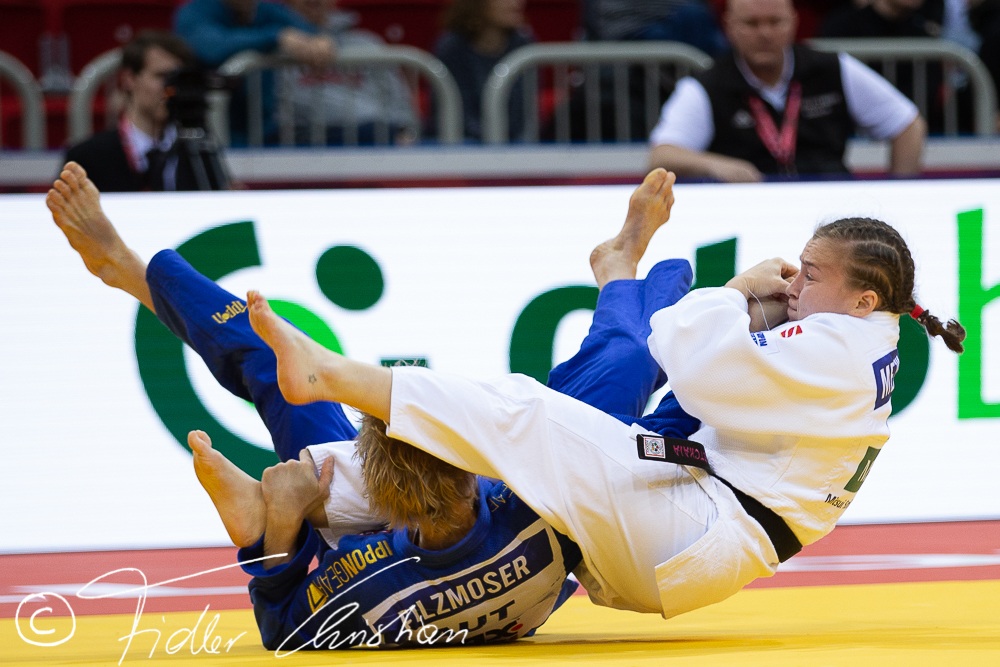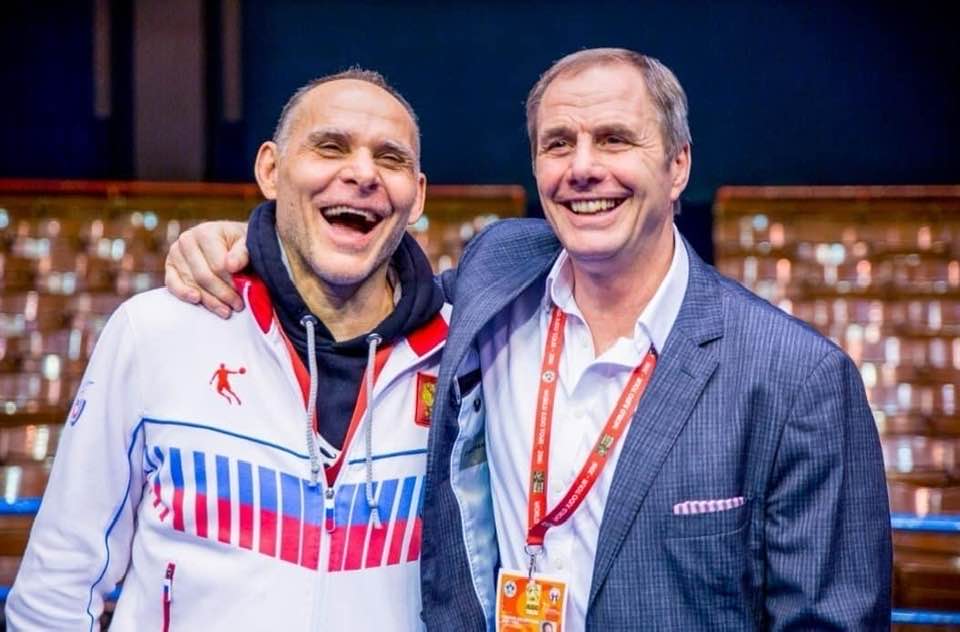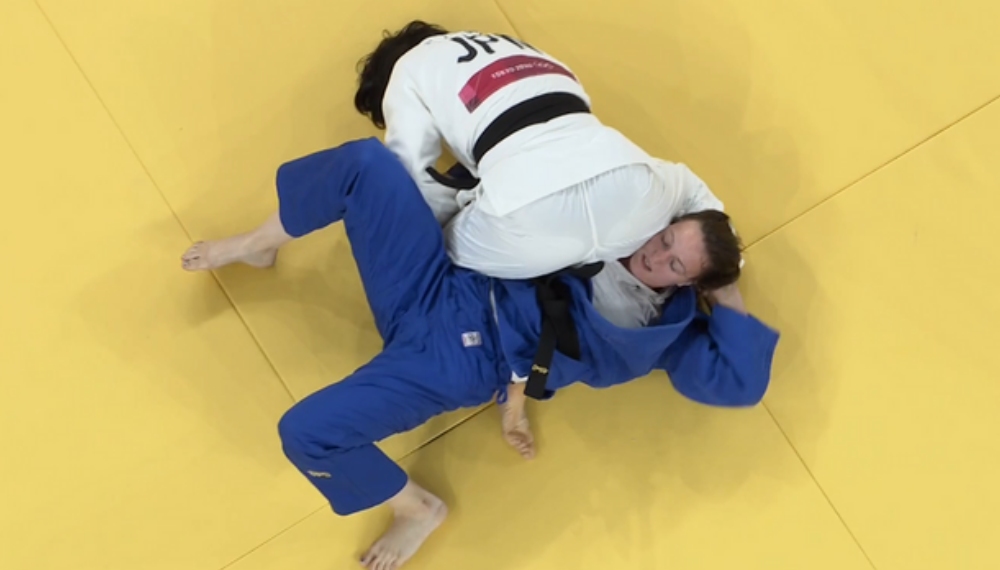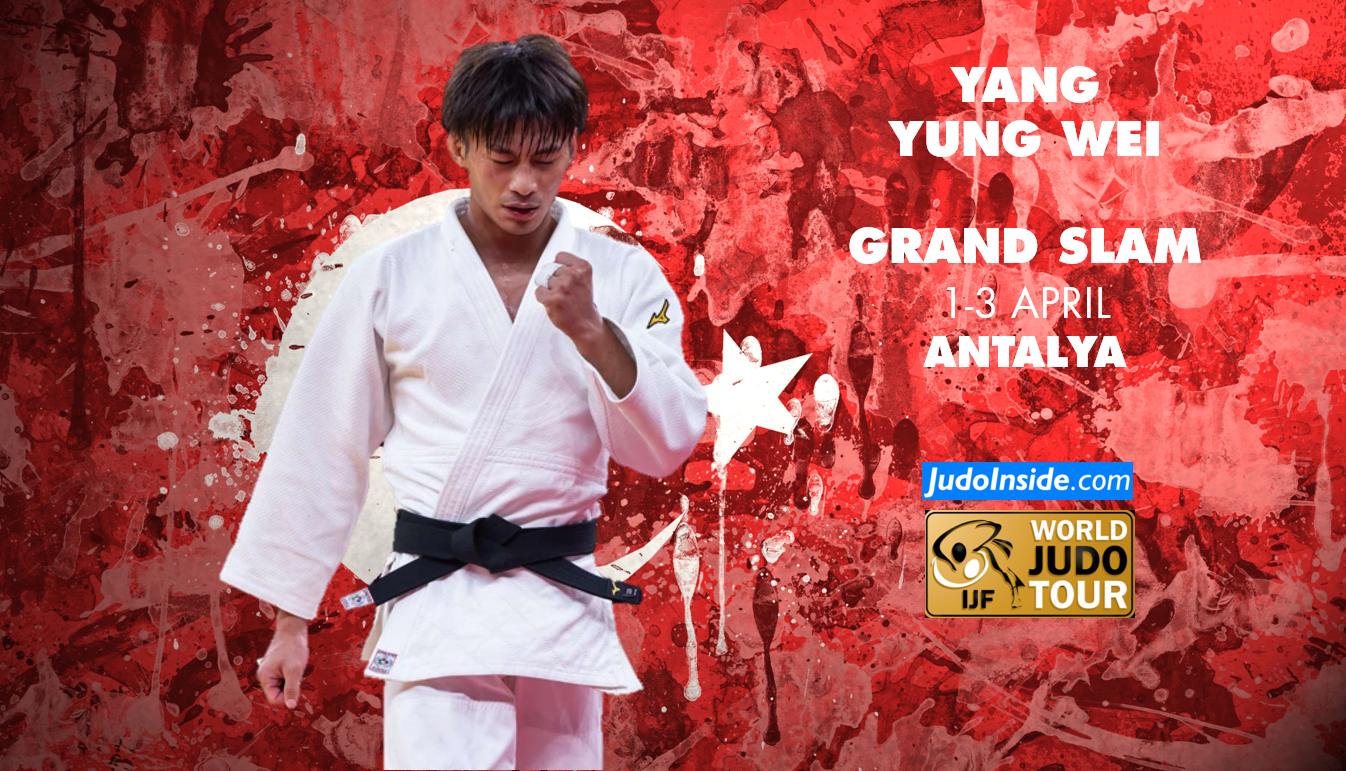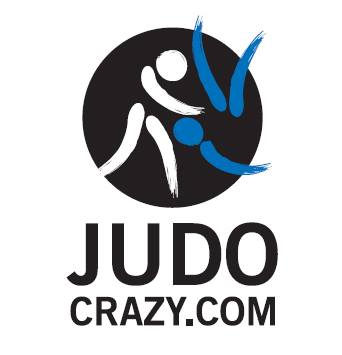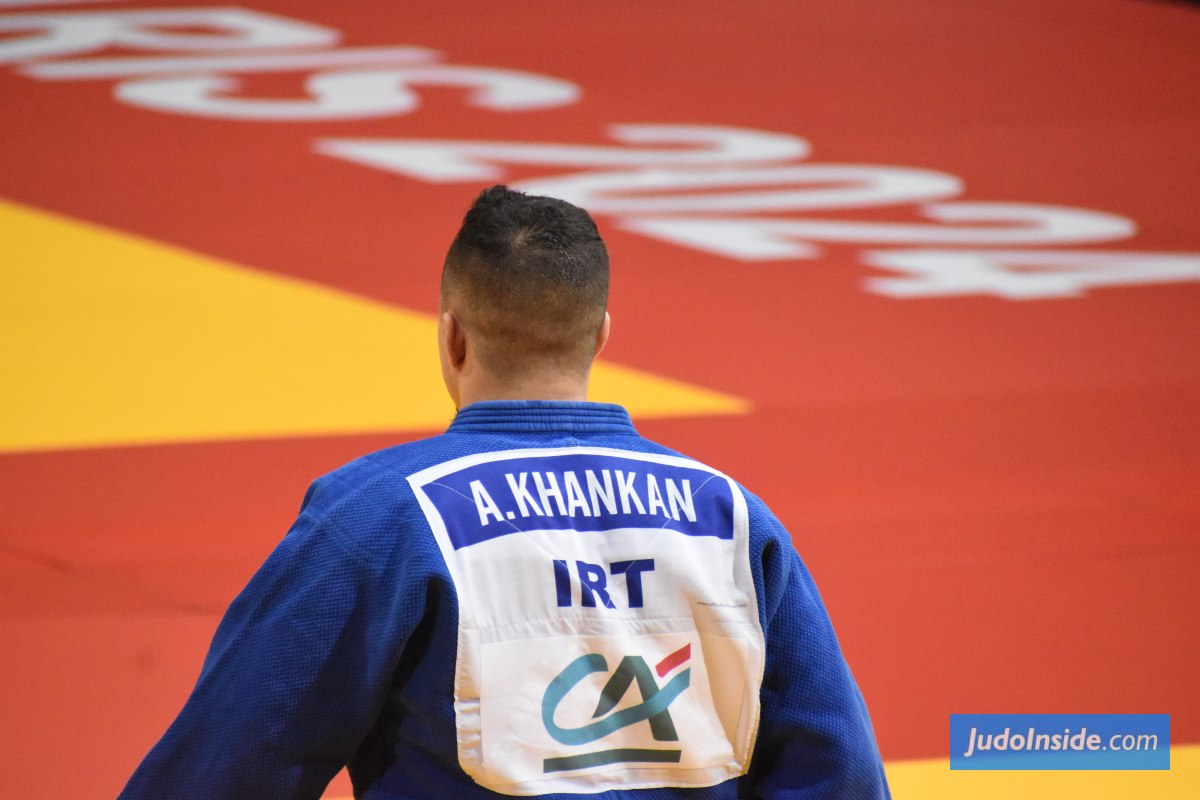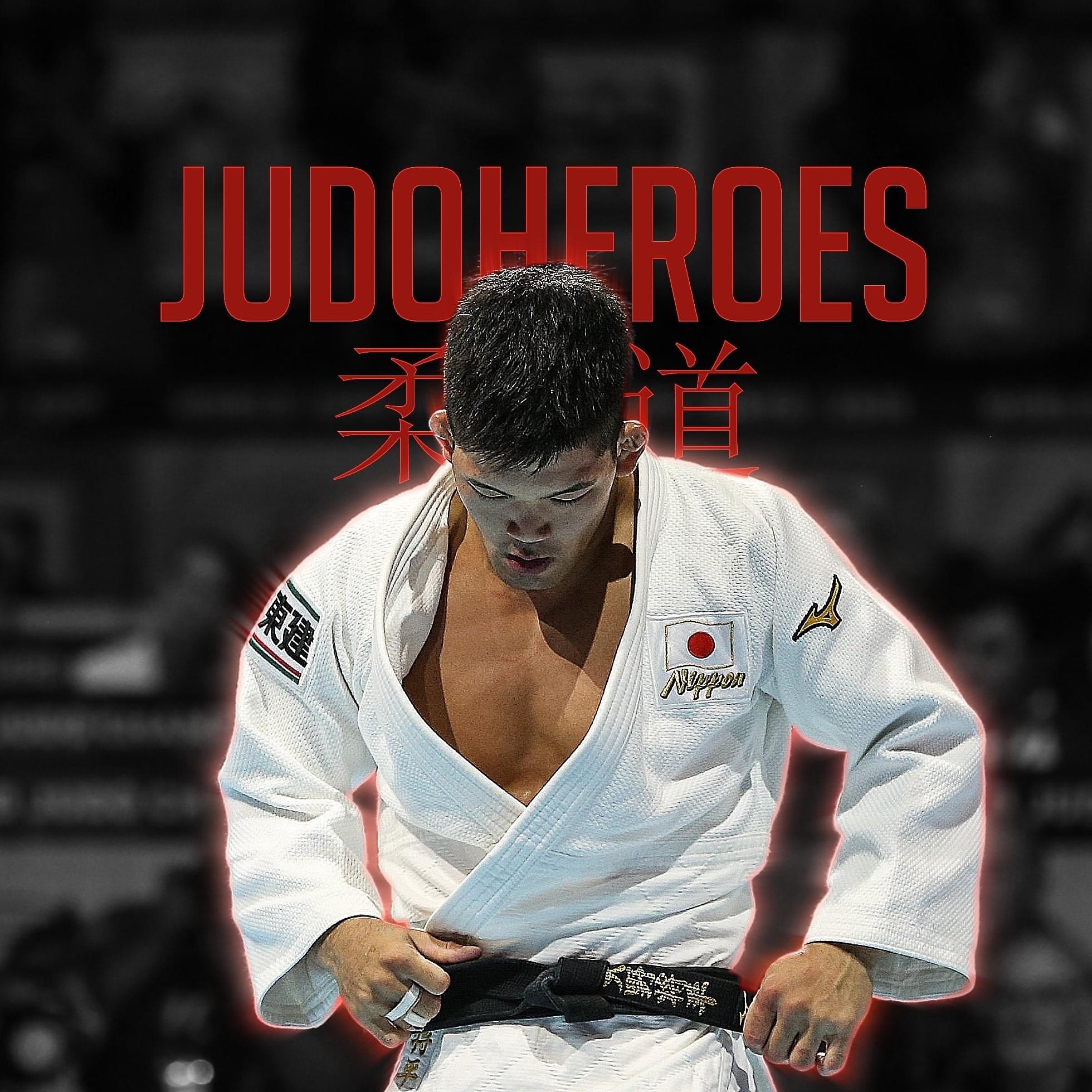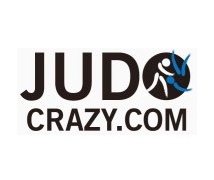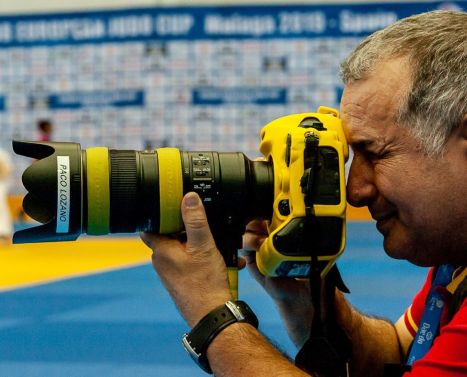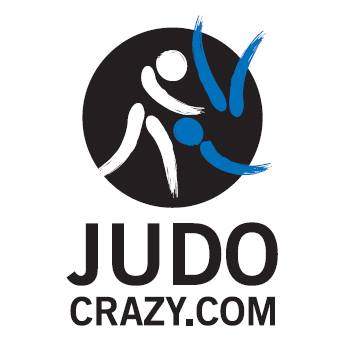Judo in the time of Covid-19: Daria Mezhetskaia
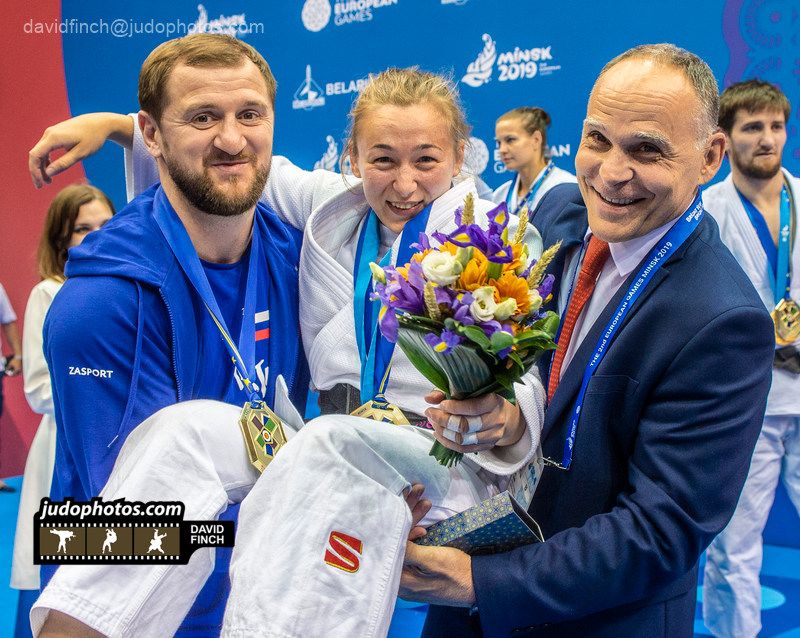
 24 May 2020 15:35
24 May 2020 15:35
 JudoCrazy by Oon Yeoh and Irakli Khmelidze
JudoCrazy by Oon Yeoh and Irakli Khmelidze
 David Finch / Judophotos.com
David Finch / Judophotos.com
When Daria Mezhetskaia won the European title last year you might have thought, this the new middleweight for the future. You might be correct, but the way up is always bumpy. Judo for women in Russia has never been easy. There is a lot of competition, a high demand and standard but the circumstances are optimized to get the best environment for young talent. There’s lots of things Mezhetskaia wants to improve. Irakli Khmelidze asked her about her roots and way up. Oon Yeoh shaped it to the following must read.
JIC: You have a very distinctive and powerful style of judo. Some even comment that you fight like a man. I’m sure they mean that in a positive sense. But how did this style come about?
DM: I’m not sure. Perhaps it’s because I like men's judo very much. But I can't say that I try to acquire their style intentionally. I just watch their fights because I enjoy it. So, their style of fighting rubbed off on me, it’s at a subconscious level.
JIC: What’s your favorite throw: uchimata, sode-tsurikomi-goshi or something else?
DM: I enjoy foot-sweeps the most — de-ashi-barai and okuri-ashi-barai — because performing them requires precisions. You have to catch them at exactly the right moment.
JIC: How do you train for that?
DM: Honestly, my ashiwaza is not so good during training. They are much better during competitions. I don’t know why. I guess timing is something that can’t be forced.
JIC: Can you tell us a bit about your coaches?
DM: Ezio Gamba is the head coach of the Russian team and he has helped me a lot. My direct supervisor is Sirazhudin Magomedov, himself a European champion, twice in fact. He helps me a lot during training and we speak a lot about the mistakes I make in competitions. He knows how to motivate me, sometimes with a praise and sometimes with some scolding. The other coach I work with is Jean-Pierre Gibert, who is a newaza expert. He is amazingly skillful but also a great motivator.
JIC: You also do some work with former top player, Irina Zabludina?
DM: Yes, she is my mentor and she has taught me a lot of “secrets” of judo. She’s been to the Olympics twice already and the lessons she’s shared with me motivates me very much. When I was younger, I looked up to her as I trained with her but I knew that one day, I would replace her as we are in the same weight class.
JIC: Let’s go back a bit. Can you share with us how you got from your early beginnings to becoming a top competitor for Russia?
DM: I started judo at the age of seven in the city of Perm. When I was 15, a coach named Sergei Gerasimov invited me to join his club, called Olimp, in Samara, and I have been with that club ever since. My younger sister, who is 16, has just move to Samara to join the club as well.
JIC: When did you start competing?
DM: Actually, my first competition happened the year I joined, at seven years of age. I was the smallest one in my division but I was keen to fight and I got third place. There was no looking back after that!
JIC: Do you have any judo heroes?
DM: When I was young, my coach showed me some videos of Toshihiko Koga. I was so impressed with his seoi-nage. Until today, when people talk about judo heroes, I always think of Koga.
JIC: You’re now a full-time professional judoka. What type of funding do you get?
DM: I don't really like to speak about finances, but I can tell you this: If you are a successful judoka with good results, you can make a good living as a judoka in Russia. It’s no secret that top-level players are well-funded in my country.
JIC: You came close to having a major senior success, making it to four IJF World Tour finals but ended up with silver each time. Your big breakthrough happened last year when you won gold at the European Games in Minsk. What was different then?
DM: I was very motivated because I knew if I wanted to go to the Olympics, I would need to have a good showing in Minsk. When I was first told that I had been selected for the European Games, I told to myself, “This is your time!” Thank God it proved to be correct.
JIC: You didn’t do so well in the Tokyo World Championships though. What happened?
DM: Well, it was my debut World Championships. I did well at first, beating Klimkait of Canada and Roper of Panama (formerly Germany). But after I lost to Silva of Brazil, I lost my concentration for the repechage contest. It was a terrible feeling. And it took me a while to recover because I pondered too much about my loss.
JIC: How do you view the postponement of the Olympic Games?
DM: I accept that it is necessary because of this terrible Covid-19 virus affecting the world. Looking on the bright side of things, this postponement gives me a little bit more time to get back on track after the disappointment of the Tokyo World’s.
JIC: The Covid-19 situation is quite serious in Russia. Are you able to train?
DM: I train with my younger sister. We have a small tatami, and my coach brought some equipment for us to do physical exercises. Of course, it’s not the same as regular judo training but I am glad we can at least do some training.
JIC: What keeps you motivated about training?
DM: The fact that I still continue to see improvement in myself. It is a special feeling when you are able to see discernible progression day by day. Every day, I’m becoming stronger and stronger, better and better.
Become a JudoCrazy Patron and read all their stories here
Special thanks to Irakli Khmelidze
 like
like
 share
share
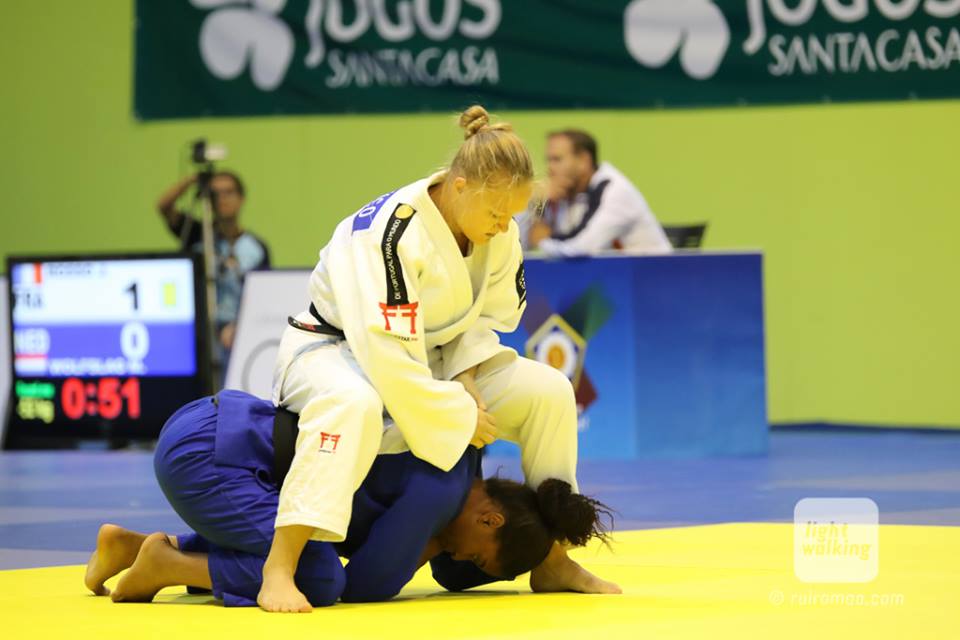
| Result | City | Date |
|---|---|---|
| 1 | Abu Dhabi | 21 May |
| 1 | Zagreb | 26 Apr |
| 3 | Belgrade | 2023 |
| 2 | Montpellier | 2023 |
| 3 | Budapest | 2023 |
| Result | City | Date |
|---|---|---|
| 1 | Tashkent | 2 Mar |
| 1 | Paris | 3 Feb |
| 1 | Budapest | 2023 |
| 2 | Tokyo | 2023 |
| 5 | Montpellier | 2023 |
